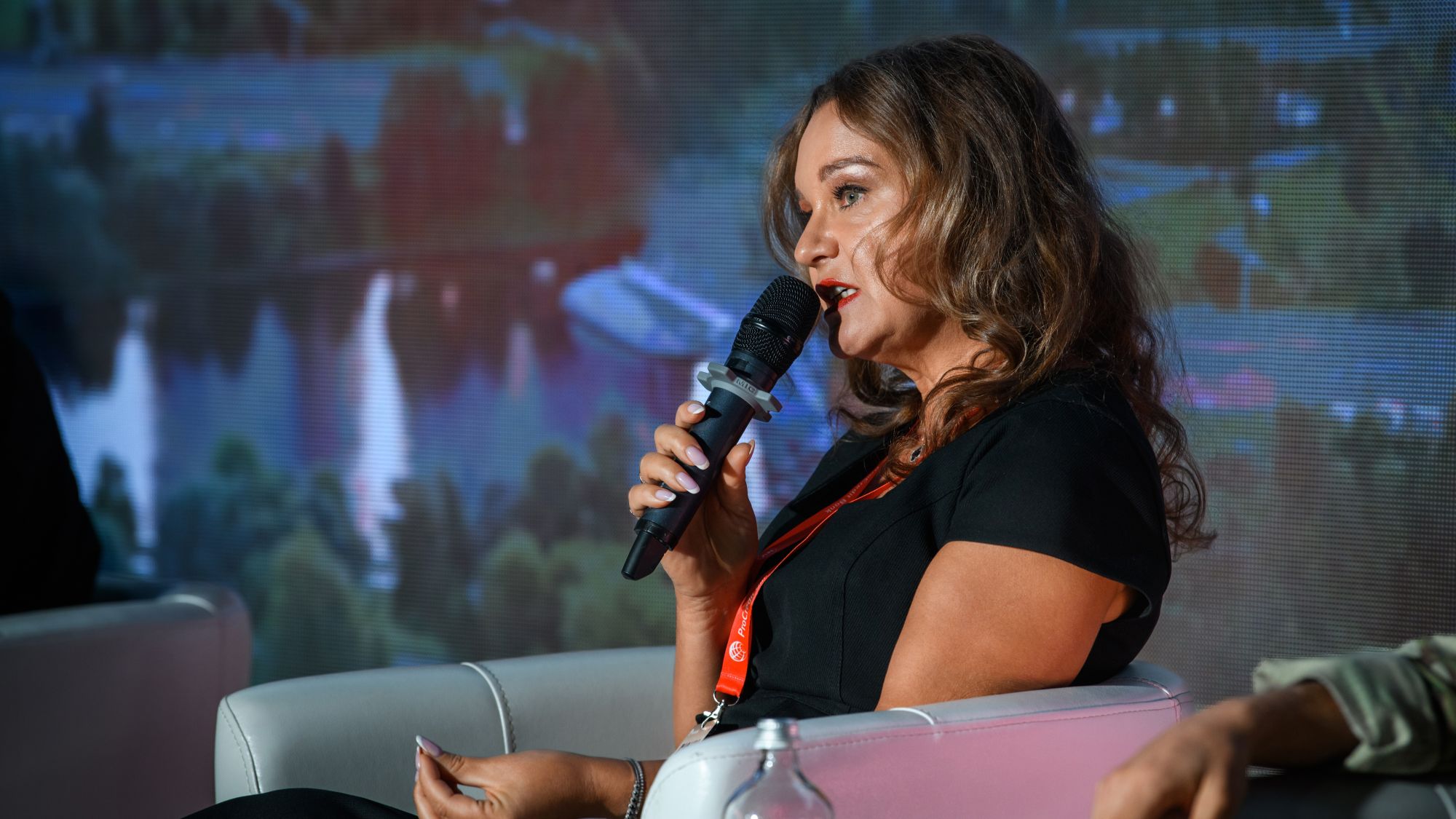The event brought together around 20 speakers from across the economy. Participants discussed how Ukrainian businesses are adapting to wartime conditions: launching new lines of activity, entering international markets, transforming approaches to people management, implementing innovations, investing and rethinking their role within the country’s evolving business ecosystem.
Petruk took part in the “Economy and People” panel discussion, which also featured representatives of Deloitte and Nestlé Ukraine, as well as the head of the Veterans’ Service of the Third Army Corps.
Workforce challenges
According to Petruk, all sectors of the economy are experiencing difficulties in attracting personnel. Metinvest alone currently has around 4,000 vacancies.
“In September, for the first time, we managed to reverse the trend: staff outflow was lower than hiring. However, there are simply no qualified specialists available on the market, so we are taking on everyone willing to work. In the areas where we operate – Zaporizhzhia, Kryvyi Rih and Kamianske – the local labour pool has been depleted, so we rely on our own resources and focus on retraining,” she noted.
To address this, the Group has audited all vocational training programmes, shortened their duration, and now provides on-the-job training. For example, whereas it previously took six to nine months to train an assistant steelmaker, the programme now lasts only two to four months and focuses exclusively on practical skills.
In addition, Metinvest uses all available channels to attract new employees – including veterans – and is ready to fund training, as well as offer housing and competitive salaries.
“At the same time, business cannot fully replace the state. A joint support programme and shared financial responsibility are needed. Ukraine’s recovery will begin with the revival of industry, so the state must work together with business to ensure that veterans and displaced people can work and live in industrial regions,” said Petruk.

Youth programmes
Petruk noted that, following the introduction of a draft law that would allow men to travel abroad, 217 male employees aged 18-22 resigned in September.
“The share of such resignations has increased fivefold, so all our efforts to cooperate with vocational colleges, run career-guidance initiatives and develop the ‘First Job’ and ‘Young Specialist’ programmes have been practically nullified. This has dealt a painful blow to business, especially in the metallurgical sector, which has traditionally been male-dominated,” she said.
Among other tools for engaging young people is a programme aimed at encouraging Ukrainian students studying abroad – including in the United Kingdom – to return home.
“This year, we likely became the first company in Ukraine to organise such a programme for students: we ran career-guidance sessions and showcased our operations in the United Kingdom. Students are undertaking internships at our European and Ukrainian sites. The main priority now is to bring young people back, as numerous job opportunities will emerge in Ukraine after the war. But to attract and retain this talent, we need to start working on it today,” said Petruk.
Opportunities for veterans and women
Given that Metinvest’s enterprises are located close to the front line, the Group has created an ecosystem to support veterans’ employment and reintegration, and has carried out surveys to identify their real needs and priorities.
“At the heart of this ecosystem lies a human-centred approach to every individual. The programmes include training for teams on how to interact with veterans. The responsibility for engaging with veterans rests with everyone at Metinvest – from the chief executive officer to shop-floor managers – because among us are heroes who continue working even under fire,” said Petruk.
In addition, veterans – and anyone interested – can learn a new profession at Metinvest Polytechnic, the mining and metallurgical university that the Group has established. “We invite everyone who is ready to join. This is a tool to enhance the appeal of industry and attract people to enterprises in heavy industry,” she added.
Traditionally, the mining and metals sector has been male-dominated due to the nature of the work and its physical demands. However, since the start of the full-scale war, the situation has changed. Today, women make up 30% of Metinvest’s workforce, working as crane operators, electricians and even operating haul trucks in open-pit mines.
“We are retraining women for traditionally ‘male’ professions that they are fully capable of mastering, while men are being reassigned to more physically demanding roles to maintain production stability. This is particularly important, as one in five employees is currently serving in the military, so women are helping to offset the workforce shortage,” said Petruk.
